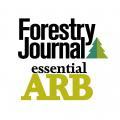
PARENTS among you will no doubt have those family games born out of long-distance car journeys. Car and lorry registrations was one such, where whoever spotted special numbers or colours and shouted out first scored a point.
Remember those French Dentressangle lorries, with their exotic paintwork? And remember that a car with the registration letters NN or AU came from Nottingham as opposed to WR which was – you’ve guessed it – the West Riding of Yorkshire. You could even buy a little book which listed all the origins of every vehicle on the road.
When I was a lad (and believe me, I once was a lad) my father introduced a variance more suited to urban journeys, and it was called ‘Beaver’. If you spotted a bearded man – and there weren’t many then – you had to shout out the word and be first to score a point. Beards were, in those far-off days, the province of sailors and eccentrics, but a little search, especially around the university at 9am, on the way to school, was often rewarding.
I spend a few hours weekly looking at catalogues for online auctions of antiques and collectables. You never know what might come up. My best coup so far was a set of six burr elm and ash Windsor chairs made by that expert craftsman Mr Stewart Linford, which I bought for a trifling amount. In the same catalogue I noticed a full-length mink coat in fine condition. Now, mink was once the epitome of all that was smart, glamorous and wealthy. There was wild mink, imported from the US, and slightly less exotic, from farms in China and, of course, in England. This particular one sold for 50 quid. The horrid reputation of farmed mink still obscures its true history. You wouldn’t want your wife, all dressed up and somewhere to go, to have green paint thrown over her, would you? So animal rights protestors thought themselves justified in releasing farmed mink into the British countryside. Enough said.
READ MORE: Beavers and cricket bats
Locally, we have wild boar. Let the poor little piggies go into the Royal Forest of Dean, someone must have said. They’ll have a nice life in the woods, eating bluebell bulbs and acorns. Then they go into town and dig up the local children’s playground and the cricket square. And wreck peoples gardens and turn over their dustbins. And cause no end of motor accidents. Whoever did such a daft and short-sighted thing can only reflect on the damage caused, but from observation it now does seem that Forestry England have got things under control.
So now they can concentrate on introducing polecats. This is justified by the proposal that given the choice between red squirrels and grey squirrels, polecats will eat greys. What else they will eat is not defined. But we have to keep our dogs out of the local re-wilding project so they don’t disturb ground-nesting birds. Polecats would, I hope never do such a thing.
And doggies are not allowed to swim in our local ponds in case they carry organisms which are inimical to our native crayfish, which cling on there. Meanwhile, all manner of ducks and waterbirds fly in and out continually and are surely much more effective carriers of infection than the odd springer or my bearded collies, desperate for a cool bath in all this hot weather.
But back to beavers. I was delighted with the experience and plain old common sense displayed by Charles Dutton in recent correspondence pages. Beavers. Destruction. Waste. Mess on a potential scale that defies quantification. But most of all, damage to trees. I’ll repeat that. Damage to trees. That’s what beavers do. Their whole lifestyle revolves around damaging and felling trees.
My father’s game would be much more difficult to play now, when everyone has a beard, or something the wearer claims to be a beard. But let’s hope that calling out the dreaded word ‘beaver’ stays in the realm of facial hair, and never becomes even possible in the streams, rivers and woods which we cherish.
Forestry Journal remains dedicated to bringing you all the latest news and views from across our industry, plus up-to-date information on the impacts of COVID-19.
Please support us by subscribing to our print edition, delivered direct to your door, from as little at £69 for 1 year – or consider a digital subscription from just £1 for 3 months.
To arrange, follow this link: https://www.forestryjournal.co.uk/subscribe/
Thanks – and stay safe.



Comments: Our rules
We want our comments to be a lively and valuable part of our community - a place where readers can debate and engage with the most important local issues. The ability to comment on our stories is a privilege, not a right, however, and that privilege may be withdrawn if it is abused or misused.
Please report any comments that break our rules.
Read the rules hereComments are closed on this article